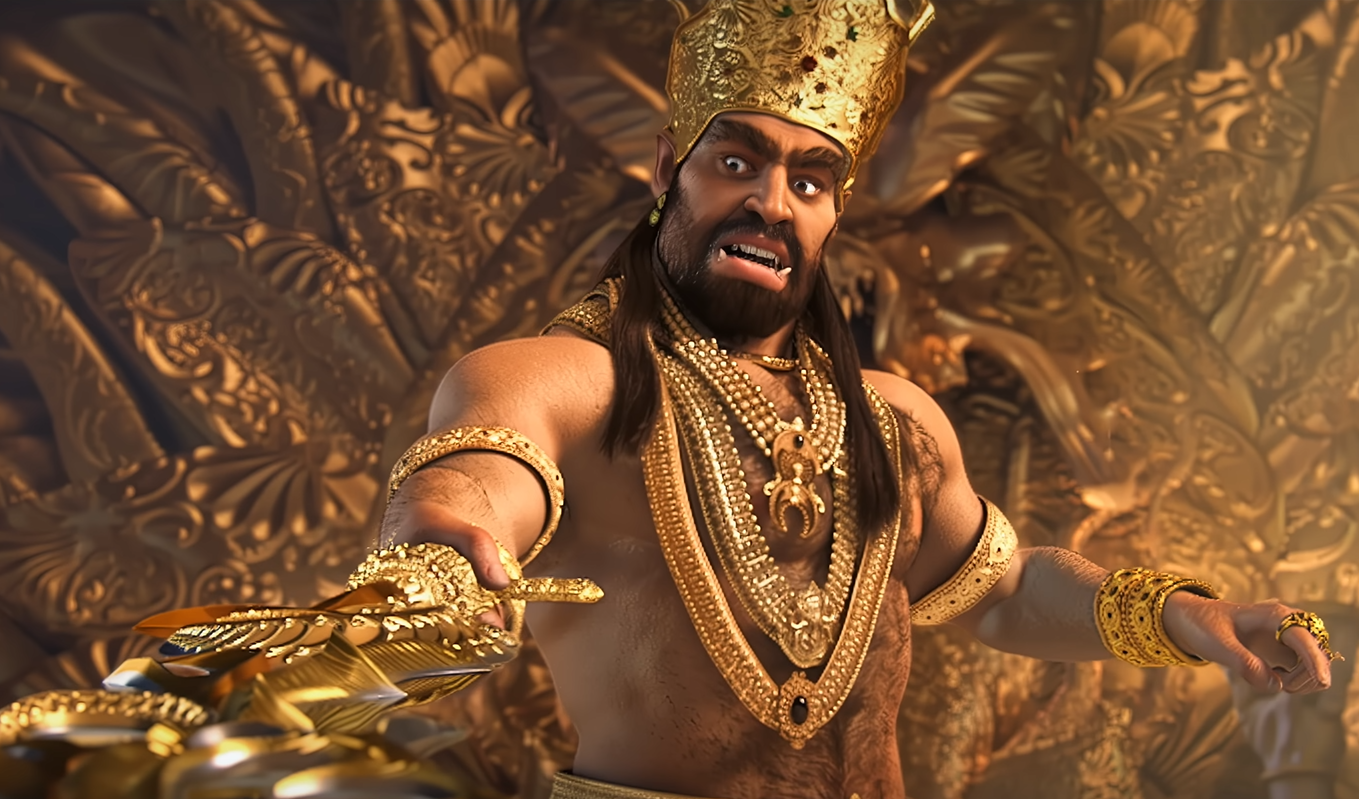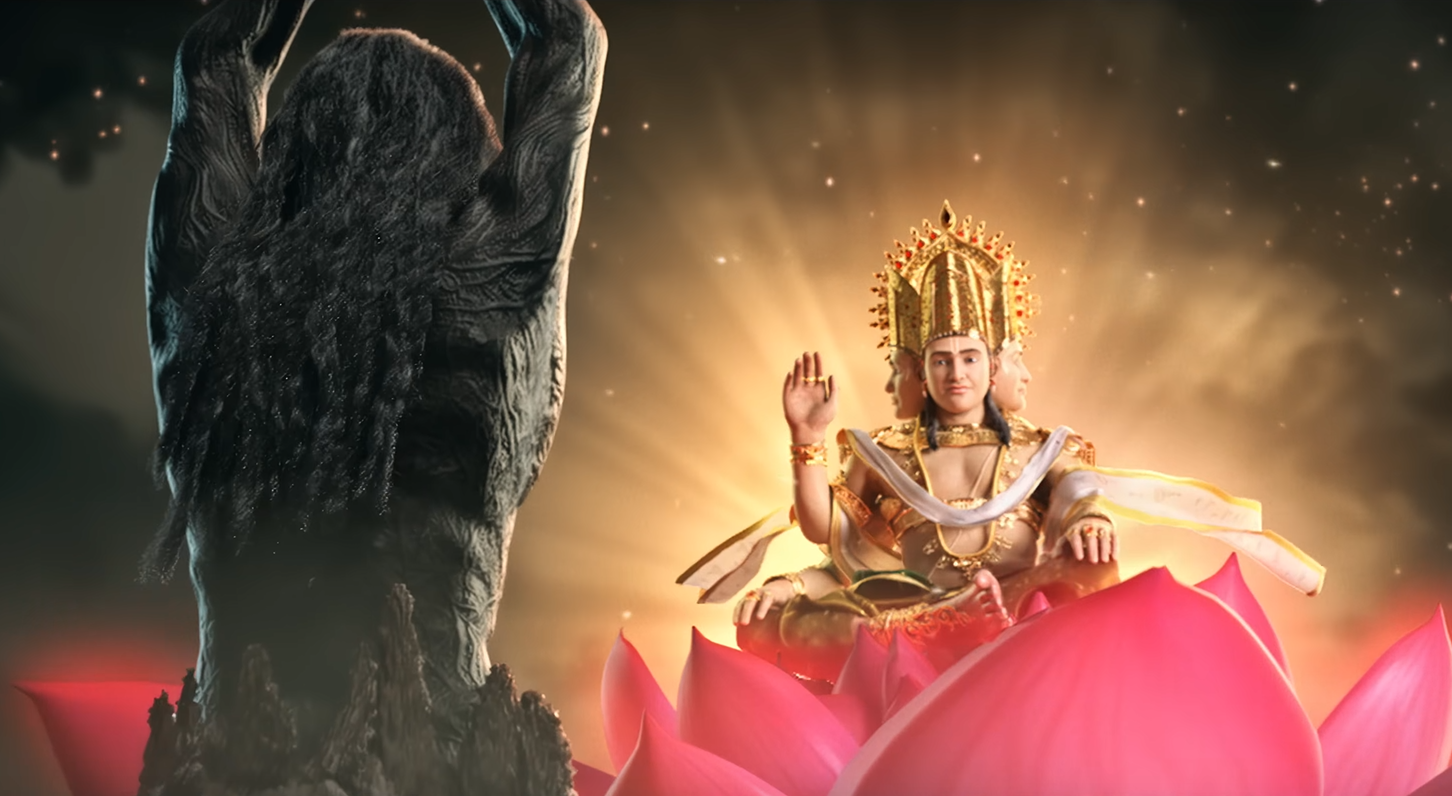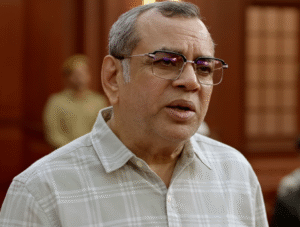Introduction
Mahavatar Narsimha, the recently released epic, emerges as a powerful retelling of the mythological tale of Lord Narsimha—the fierce incarnation of Lord Vishnu.
This film is a cinematic spectacle that blends ancient legend with contemporary filmmaking mastery. From rich visuals to evocative storytelling, it’s a brave attempt to honor the divine protector’s legacy while inspiring modern audiences about righteousness, courage, and transformation.
With a saturating palette of fiery reds and golden hues, the film perfectly captures the wrath and grace of its central avatar.
Plot
The narrative of Mahavatar Narsimha revolves around the cosmic conflict between devotion and tyranny.
The story traces the evil king Hiranyakashipu, whose arrogance and blasphemy threaten cosmic balance and human freedom.
His son Prahlada remains a beacon of unwavering faith in Lord Vishnu. The king’s relentless oppression escalates until divine intervention takes the most dramatic form: Narsimha, half-man, half-lion, manifests to protect the virtuous and annihilate evil.
The plot moves through gripping emotional beats—fear, hope, defiance, and ultimate justice—making the timeless myth visceral and immediate.
This journey from darkness to light is enriched by flashbacks and prophetic narration, accentuating the hero’s divine emergence.

Performance & Direction
The film is helmed by a visionary director whose command over tone and scope anchors the mythological grandeur in human emotion.
The lead actor embodying Narsimha exudes a commanding presence, combining raw physicality with nuanced intensity.
Prahlada’s portrayal is equally compelling, offering heart and innocence amidst chaos. Supporting roles, especially that of Hiranyakashipu, are performed with seething menace and regal arrogance.
Cinematography stands out spectacularly with sweeping wide shots that evoke a cosmic scale, while close-ups use dramatic shadows and highlights to deepen emotional impact.
The color grading favors deep reds, oranges, and golds, symbolizing divine fire, destruction, and renewal.
Lighting techniques highlight the clash between darkness and light—mirroring the film’s thematic core.
The narration, delivered with a strong, authoritative voice, adds a mythic texture that both grounds and elevates the story, guiding the viewer through complex philosophical undercurrents without losing dramatic momentum.
The sound design complements this with a meticulous mixture of traditional instruments and powerful orchestral scores, crafting an immersive atmosphere that pulses with energy.
What Works
Visual Grandeur: Every frame bursts with color and detail, from the fiery aura around Narsimha to the opulent yet ominous court of Hiranyakashipu.
The use of vibrant warm tones not only signifies chaos and divine wrath but also adds theatrical majesty to the spectacle.
Strong Performances: The leads breathe life into their archetypes, balancing legendary might with relatable emotion. The antagonist’s chilling delivery adds much-needed tension.
Narrative Depth: Rather than a mere retelling, the film interrogates faith, power, and justice, inviting audiences to reflect on courage in the face of overwhelming odds.
Direction & Pacing: The director manages an impressive balance between grand battle sequences and intimate moments of despair and hope, ensuring the epic never loses its human core.
Sound & Music: The score oscillates perfectly between reverence and adrenaline, underscoring key narrative shifts and enriching the cinematic experience.

Final Words
Mahavatar Narsimha is a bold mythological epic that triumphs through its courageous storytelling and breathtaking cinematic craftsmanship.
It channels the fierce spirit of its divine hero with such intensity that viewers are not just spectators but participants in the cosmic drama of good versus evil.
Despite the weight of its spiritual themes, it skillfully maintains a compelling narrative pace and emotional resonance.
This movie is a triumph of color, sound, and human spirit that will inspire both devotees of mythology and lovers of powerful cinema.
Prepare to be engulfed by flames of faith, fury, and redemption—Mahavatar Narsimha is a blazing beacon of heroic spirit in contemporary filmmaking.





